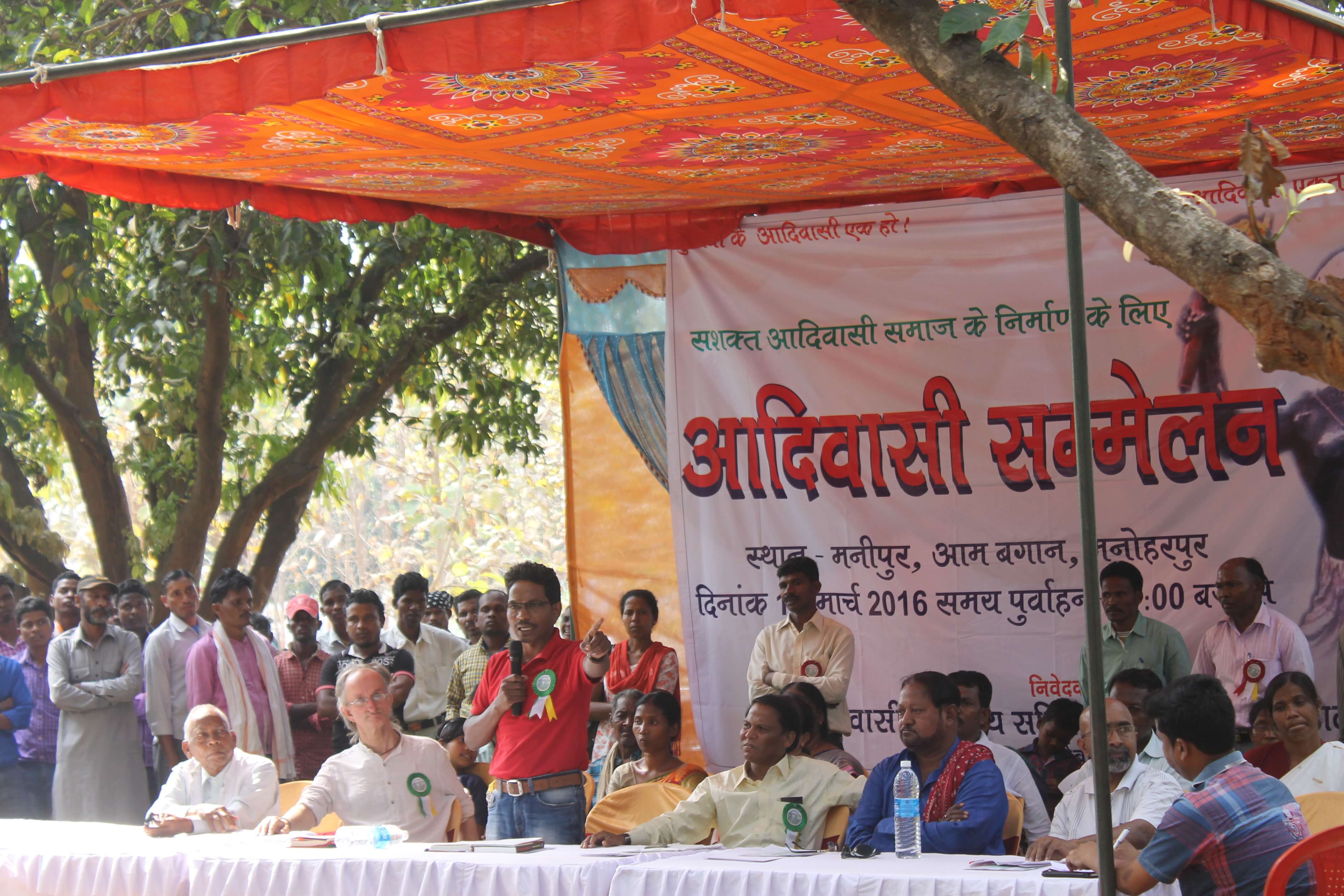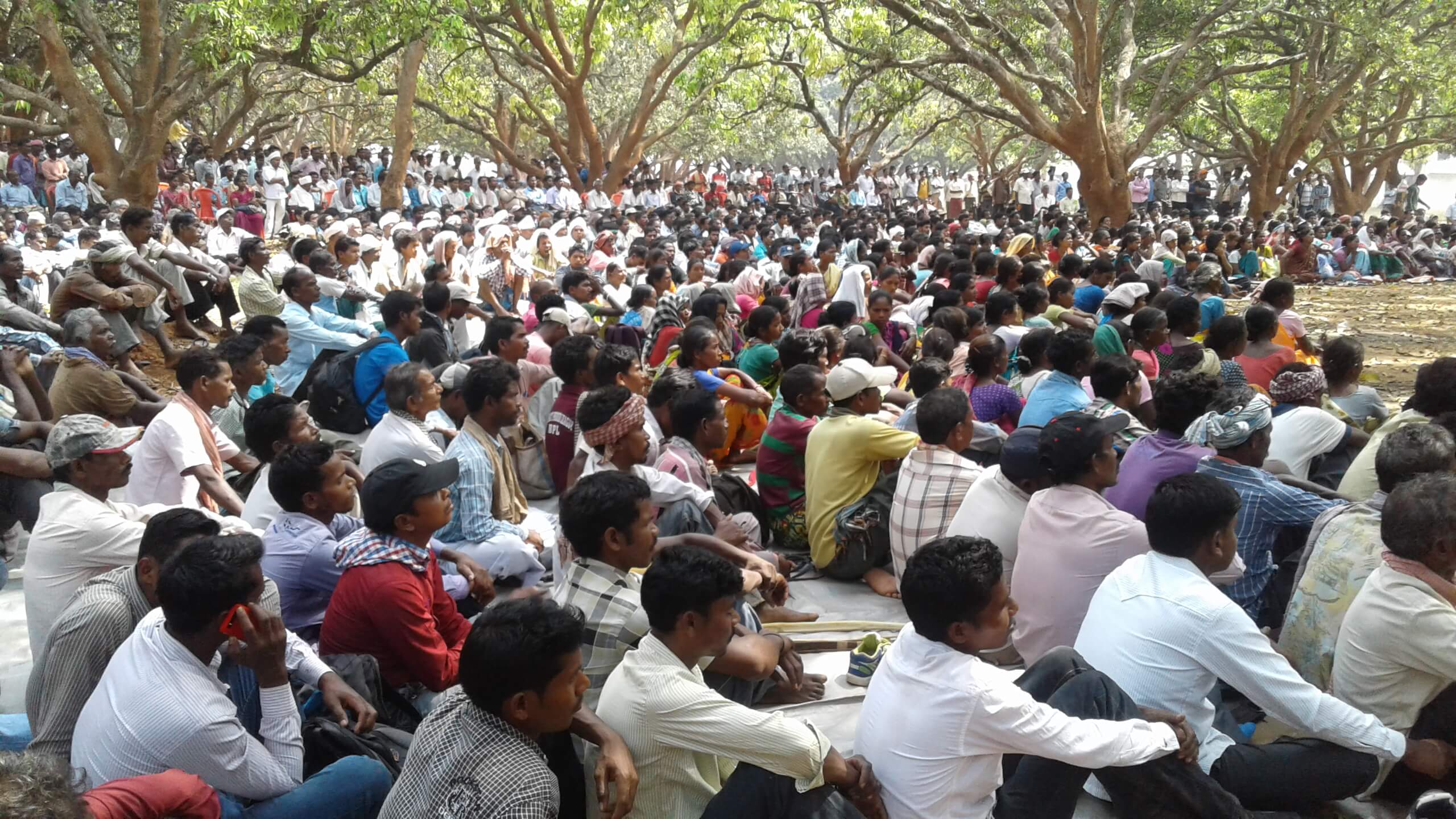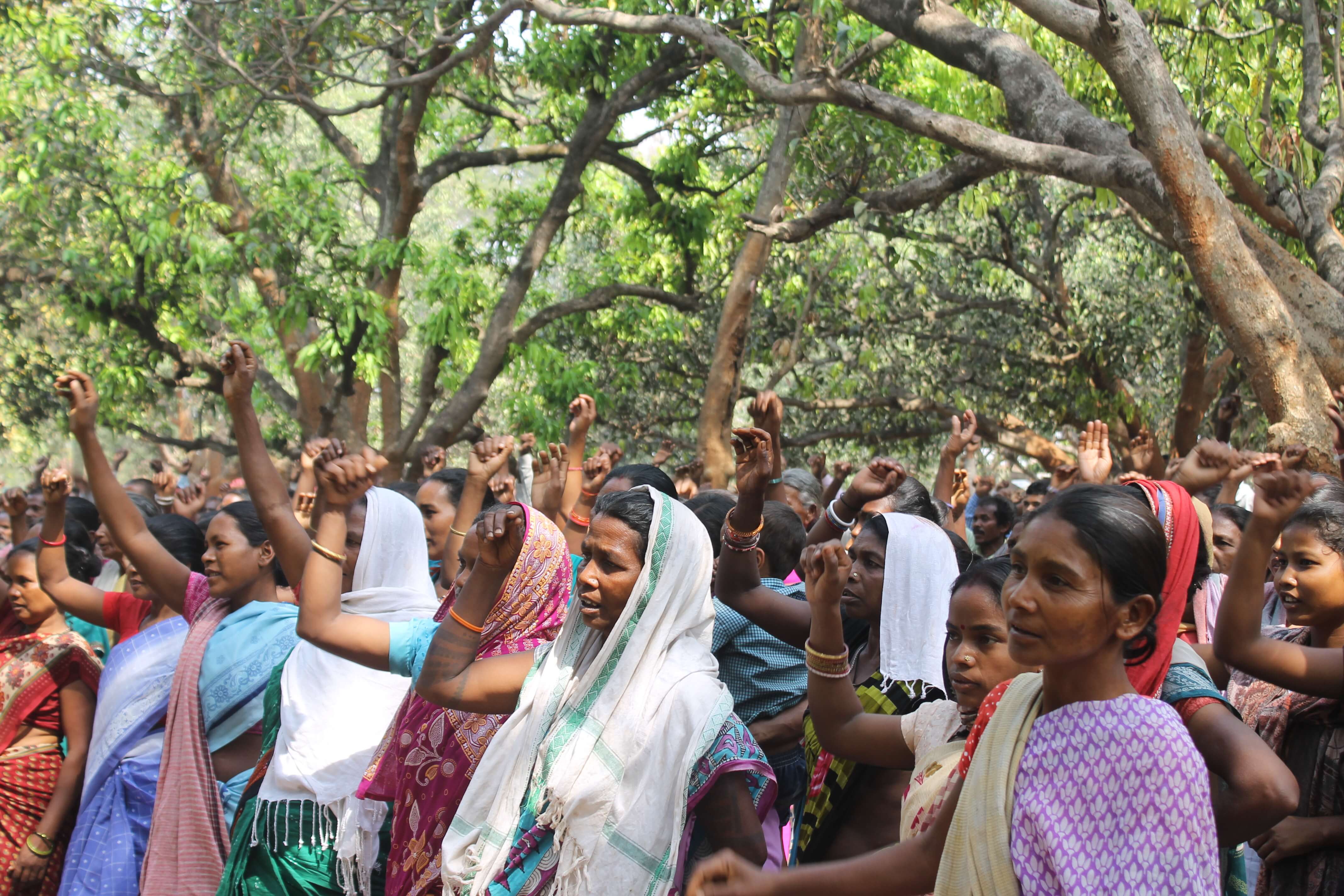
Last Monday Indian Government authorities prevented well-known Indian indigenous rights activist Gladson Dungdung from boarding a flight to the UK, sparking outcry from the international community who have condemned what appears to be a politically motivated move to muzzle the voices of India’s Indigenous Peoples, known collectively in India as Adivasi.
One of IC’s longest contributors, the Adivasi author and human rights defender was traveling to the UK to attend a conference on mining and environmental history in South Asia at the University of Sussex. He had been invited to talk about the struggle of two Adivasi communities working to protect Saranda Forest.
The story of Saranda forms the subject of Gladson’s latest book, Mission Saranda: A War for Natural Resources in India. In its contentious pages, Galdson examines the rapacious efforts of mining companies to exploit the ancestral home of 125,000 Adivasi people as part of the Indian Government’s development plans in the region.
The publication of Mission Saranda marks the only significant change in Gladson’s circumstances and personal profile since he last successfully traveled to the UK in November 2015 to speak at a workshop on ‘Adivasis in the Anthropocene’. This has lead his supporters to suggest the success of the book, which is critical of the Indian Government, is behind the attempt to block Gladson’s movement.

Saranda Forest lies in Jharkhand, a state located on the eastern side of India. According to Dr. Vinita Damodaran, Director of the Centre for World Environmental History at the University of Sussex, who was due to speak alongside Gladson, Saranda is ecologically rich and the largest surviving Sal tree (Shorea robusta) forest in Asia.
“The protection of this forest should be of paramount national and international importance”, she says.
The Ho and Munda Peoples have called Saranda Forest home for centuries and, as Gladson writes, their ways of living with the forest are mutually supportive. Their livelihoods and spiritual practices are entirely dependent on the fragile forest ecosystem. The Ho and Munda in turn, have traditionally played a key role in protecting and maintaining the health of the forest.
Saranda’s ecological wealth and the homes and life ways of the Ho and Munda are now at risk of being wiped from the face of the planet as mining companies seek to exploit the abundance of iron ore in the forest’s sub-soil.
The Indian Federal Government has so far granted mining leases for 1,100 hectares of forest land. If all 85 companies that have applied for leases are successful in their applications, their concessions will total 82,000 hectares; an area larger than Saranda Forest itself.
One of the mining companies that has been granted a lease in Saranda is UK-listed Vedanta Resources, which became infamous for its long-running attempt to mine bauxite from the sacred Niyamgiri Hills in the neighboring state of Orissa despite unanimous and sustained resistance from the indigenous Dongria Kondh Peoples. The company has been the subject of global protests and numerous allegations of extensive human rights abuses. On May 7, 2016 they were granted a license to build a steel plant and also intend to inherit an iron-ore mine from the company Sesa Goa.
Even now, as a result of mining already under way, Adivasi communities in Saranda are being forced to source their water from polluted streams and their forest land is being steadily torn away by extractive activities, with little to no benefits accruing to local communities.

The plan to exploit the minerals that lie beneath Saranda is part of Indian Prime Minister Narendra Modi and his government’s pro-development ‘2020 Vision’, in which entire regions are devoted to mining and industry and the populations living there are either displaced or have their existing ways of life drastically and forcibly changed through cultural assimilation.
Placing the destruction of Saranda Forest in this wider political context goes some way to explaining why activists like Gladson, who are speaking out against what can be seen as a war on India’s 68-million indigenous people and the environment, are met with slander, propaganda and the aggressive curtailing of civil and political rights by the state.
The move to prevent Gladson from traveling to the UK bears a striking similarity to the treatment of Greenpeace activist Priya Pillai who was prevented from leaving India in January 2015 to testify on the activities of UK-registered company Mahon Coal Limited.
In response to Pillai’s case, the Delhi High Court criticized the government’s action, saying that ‘dissent may not be palatable but it cannot be muzzled’.
It would appear the Modi Government hasn’t learned its lesson. Following the treatment of Gladson, campaign organizations, scholars and activists wrote an open letter to the Indian High Commission in the UK, calling the incident “an unacceptable breach of democratic rights”.
The letter, which draws attention to the apparent muzzling of an activist in order to stifle dissent from the government’s agenda, also demands that Gladson “be compensated and the authorities apologize for preventing him from attending this conference for which he had a valid British visa”.
Joseph Lambert is a legal researcher and activist who currently works for the Gaia Foundation in London.

Indigenous Peoples are putting their bodies on the line and it's our responsibility to make sure you know why. That takes time, expertise and resources - and we're up against a constant tide of misinformation and distorted coverage. By supporting IC you're empowering the kind of journalism we need, at the moment we need it most.